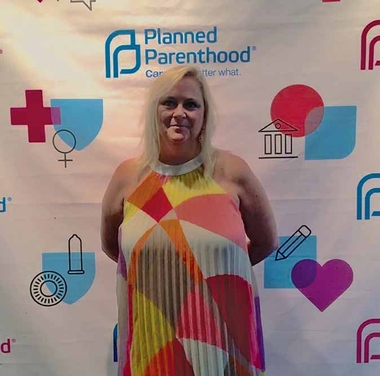Planned Parenthood brings HIV, menopausal care to the Great Plains

by Sara Ritsch
Staff Writer
Gather ‘round, people – if you are HIV positive or a woman over 50, this great news could very well apply to you.
Planned Parenthood of Central Oklahoma welcomes Planned Parenthood of Kansas and mid-Missouri as their new sister in providing healthcare to menopausal women, transpeople and – finally – those affected by HIV! Beginning in August, menopausal, PrEP and PEP care are available at a newly merged Planned Parenthood of Great Plains (PPGP), providing healthcare to marginalized communities who may not even realize they are at risk.
PrEP, or Pre-Exposure Prophylaxis, is “a way for people who do not have HIV but who are at substantial risk of getting it to prevent HIV infection by taking a pill [Truvada] every day,” according to the Centers for Disease Control and Prevention. Studies show that PrEP is 92 percent effective if taken as required.
Laura McQuade, PPGP President and CEO, says PrEP is a preventative regimen. “Take it if you are in a situation where you feel you are more at risk,” she says. “Perhaps your partner already has HIV. Maybe your lifestyle or professional life puts you at an elevated risk for HIV. This is a regimen you can take prophylactically to prevent yourself from contracting HIV.”
She warns that she is not a clinician, but informs The Gayly about PEP, as well. “I think of PEP as the emergency contraception for HIV. If you feel like you just have had a sexual experience where you may have been exposed to HIV, that’s what PEP is there for. PEP is immediately taken in a window of time, like emergency contraception is if you feel at risk for an unintended pregnancy.”
PPGP’s focus on PrEP and PEP is really oriented towards women and communities of color, although they will provide it to anyone who needs it. PrEP has been marketed towards white men who have sex with other white men – so they are trying to introduce it in OKC as a preventative regimen for communities who don’t know they can take it.
“So many people are shocked they’re even candidates for it. So we’re thrilled to serve a broad community of women and people of color.”
There has been much discourse in the past months regarding Black Lives Matter, particularly the lives of women of color. Even Beyoncé’s Lemonade album discusses the disparity of care for black women in modern culture. But Planned Parenthood plans to level out this discrepancy, beginning with healthcare and services for women of color.
“Planned Parenthood has long been a provider and partner with some of the least heard, least enfranchised, least serviced communities. I think we will continue to have real opportunities to grow and strengthen these partnerships,” McQuade says.
“African American women are two times more likely to have HIV and breast cancer. We have to start looking at health indicators and have to start providing access to Latina and African American communities and beyond.”
McQuade explains that PP’s merge into Great Plains, the unity of Kansas, mid-Missouri and Oklahoma, is vital for healthcare for women of color. The recent decision not to cut Medicaid for PP has been quite the blessing for the community. “If we had lost that, extending to these marginalized communities would be more difficult,” she says.
“But we have to meet their needs through education, too. Even if you are having care, you have to be coming in for that annual exam. Certain communities have different needs and need to start educating.
“I think of a hierarchy,” she says, bringing up a real issue. “You have the white male population. Then men of color, then white women, then women of color. The stigma and barriers they face are tremendous because of so many areas of divide they have to cross.”
With PrEP, PPGP intends to do all of the counseling and consultation. “HIV remains incredibly stigmatized, particularly in certain communities,” she says. “So you really have to counsel people. Sitting and counseling is about destigmatizing and getting to the core of healthcare. It’s a process we follow as a drug regimen, so people can get all their care through us.”
PPGP is “feeling good” about the future of women’s healthcare and the Texas decision to stop limiting access to abortion services. McQuade says PP is continuing to look at options to extend contracts. Along with the introduction of HIV care to PP, menopausal care is also being announced in August. This will open their clientele to more than their regular demographic, as well as extend the lifespan of personalized care for their clients.
“This is about healthcare and access to services. The fact that it remains a political football is really unfortunate,” she says. “So I want Planned Parenthood to be part of the solution; part of moving away and part of moving forward.”
The Gayly – August 7, 2016 @ 11:35 a.m.





